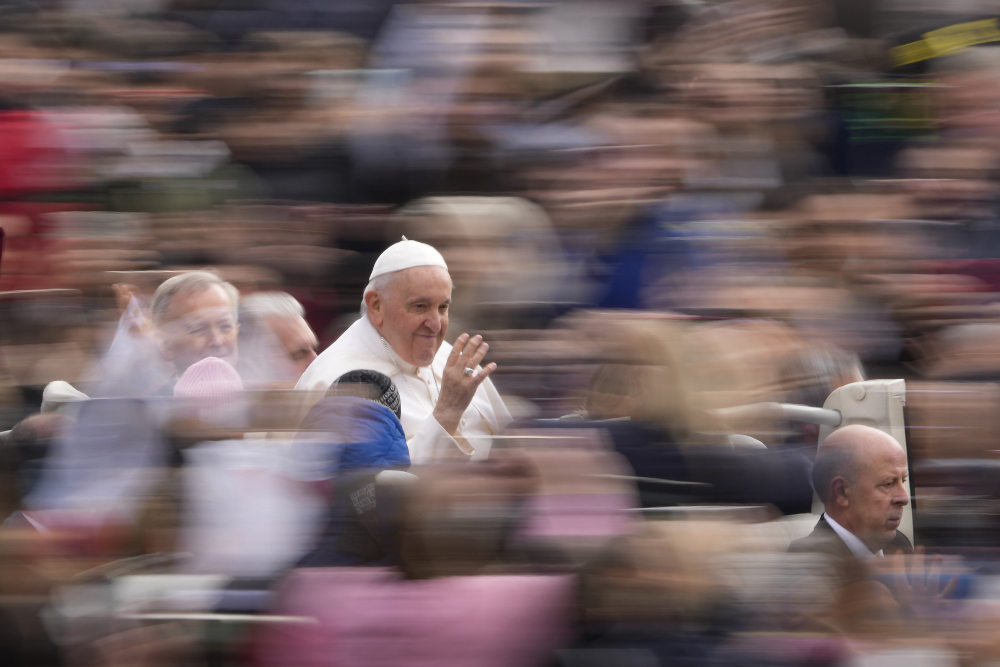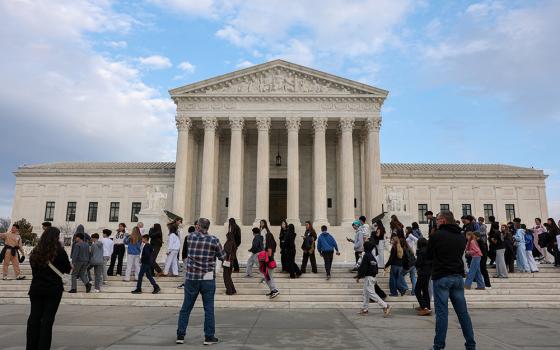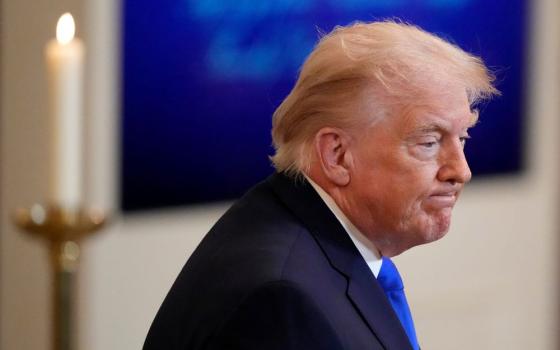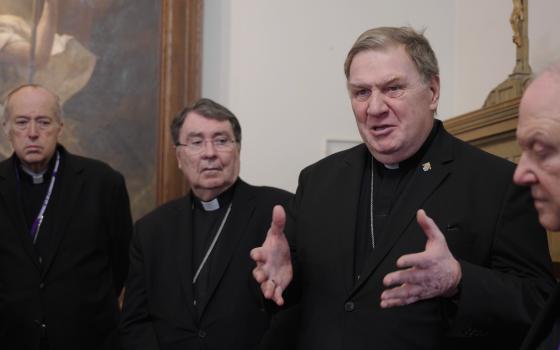
In this photo taken with slow shutter speed, Pope Francis arrives for his weekly general audience in St. Peter's Square at The Vatican, Wednesday, March 8, 2023. (AP Photo/Andrew Medichini)
Pope Francis has significantly increased the Vatican's female workforce, including in high-ranking positions, but women face continued resistance from the all-male Catholic hierarchy to access leadership positions in the church, according to Vatican statistics and independent surveys released March 8.
The data was released as Francis marked International Women’s Day by thanking women "for their commitment to building a more humane society, through their ability to grasp reality with a creative eye and a tender heart."
Catholic women do the lion’s share of the church’s work in schools, hospitals and passing down the faith to future generations, but have long complained of a second-class status in an institution that reserves the priesthood for men.
Beyond the words, Francis has overseen a marked increase in the number and percentage of women working at the Vatican in his 10 years as pope, from 19.3% in 2013 to 23.4% today, according to statistics reported by Vatican News.
In the Curia alone — the Holy See offices that actually run the universal Catholic Church — the percentage of women has now hit 26%, such that one in four employees is female.
And while no woman heads a Vatican office, more women hold top decision-making positions than at any time in the Vatican’s history.
Among them is Sr. Raffaella Petrini, the first-ever female secretary general of the Vatican City State, responsible for the territory’s health care system, police force and main source of revenue, the Vatican Museums.
Petrini, a member of the Meriden, Conn.-based Franciscan Sisters of the Eucharist religious order, said March 8 during a Women’s Day speech that her nomination had raised eyebrows, "more than I expected in my ingenuity."
She acknowledged that her philosophy of organizational leadership had encountered some resistance, particularly within the Vatican’s old guard, but that younger employees were more open to the collaborative teamwork that she promotes.
Advertisement
"Even in non-ecclesial organizations, resistance is part of the process of change," said Petrini, a professor of welfare economics at Rome’s Pontifical Angelicum University.
In addition to naming more women to the Vatican, Francis has launched a multi-year consultative process about the church’s future that has increasingly pointed to concrete demands by Catholic women for greater leadership and decision-making roles.
María Lía Zervino, president of the World Union of Catholic Women’s Organizations, said Francis’ consultative synod process was going a long way toward letting women’s voices be heard. She released preliminary results of a survey of female participants which found that the majority believed they had been listened to, even though obstacles remained.
Zervino, who along with Petrini was named by Francis as the first-ever female members of the Vatican’s Dicastery for Bishops last year, said 43% of the respondents identified "ordained ministers" as posing the greatest obstacle to the consultation process, evidence that clerics remained resistant to women’s full participation.
Another survey released March 8 by researchers at the University of Newcastle, Australia identified abuses of power and clericalism as barriers to women's participation in the church, and found the vast majority of respondents to a non-random sampling of Catholic women supported women's ordination to the priesthood and the ability to preach homilies at Mass.
Zervino said her own experience at the Vatican helping nominate bishops hadn’t run into clerical resistance. But she said it hadn’t been easy, either.
"In my life, I never thought I would be doing this, and it requires a terribly big effort for me because I have to be at a high level that I’m still learning," she told a Women’s Day event at the Vatican.
She said her experience had taught her that the church must train women to be leaders in the hierarchy, since those positions are now open to them thanks to Francis' reforms.
"I thank the church for this, which is an important, wonderful step forward," she said. "There is no possibility of going back."






